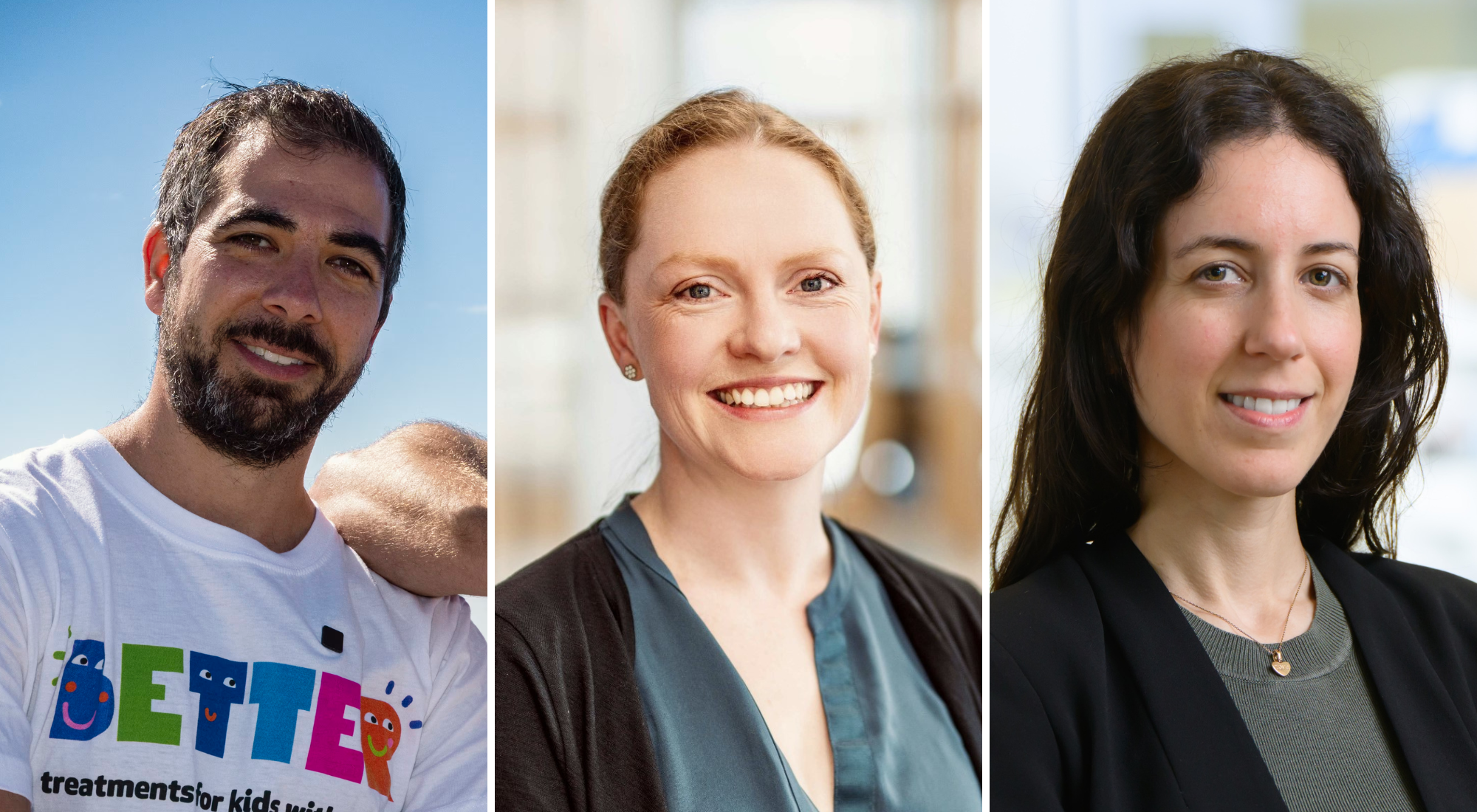These familiar Fellows have some updates!

Your continued support of The Kids’ Cancer Project has helped us commit over $76 million to research in the last 30 years.
In 2024, we announced our inaugural cohort of Col Reynolds Fellows, a group of paediatric cancer researchers backed by a $7.6 million, three-year commitment from The Kids’ Cancer Project made possible by your gift.
While research is certainly a long game, these projects have made significant progress since that announcement 12 months ago, with your donations continuing to make a wider impact in the childhood cancer research sector.
A monthly donation to The Kids’ Cancer Project allows you to build long-term impact for kids with cancer.
When you commit to survival with a monthly gift of just $22, you will ensure we can continue to fund bold clinical trials for childhood cancers.
Sign up today.
Dr David Mizrahi
Based at the University of Sydney, Dr Mizrahi is delivering personalised fitness plans for kids with cancer. Rolled out in hospitals and Camp Quality recreation camps, the programs are built around diagnosis, physical capabilities, age, maturity level and exercise interest.
The project has three phases: A survey to understand the needs of families and health professionals; the identification of a child’s needs post-treatment; and randomised clinical trial scheduled for 2026.
Parental groups from Westmead Children’s Hospital and Camp Quality, plus European paediatric exercise oncology researchers have all been sought for feedback. The St. Jude Children’s Research Hospital (USA) is also assisting in analysing physical function issues of children with cancer post-treatment, shaping the programs.
Dr Katherine Pillman
UniSA-based computational biologist Dr Pillman is utilising molecular modelling to identify the differences in each neuroblastoma patient’s tumours and how these differences impact treatment needs.
Dr Pillman has already identified the gene regulators responsible for developing neuroblastoma cells, while some cancer cell network analysis and target identification has been partially completed. Her work targets proteins that control which genes get turned on or off in a cell, which lead to tumours.
Dr Pillman is now combining and analysing data of different ‘omics’ levels, while cell line models are also in development, which will help test treatment effectiveness.
Her team has also identified five genetic mutations and six tumour suppressors which could hold the key to stopping neuroblastoma.
Dr Teresa Sadras
Now running her own lab at the Olivia Newton John Cancer Research Institute, Dr Sadras’ research delves into why 10-15% of children diagnosed with B-Cell Acute Lymphoblastic Leukaemia (B-ALL) eventually relapse and no longer respond to treatment.
Current treatment strategies for B-ALL rely on outdated treatments to kill cancer cells, with new and repurposed protocols identified by Dr Sadras and her team helping to inform further research.
Screening of over 2,000 FDA- approved compounds on four sub clonal mutations – different genetic alterations found in cancer cells – has taken place, leading to exciting results! Compounds used to treat adult blood cancers may also work to eradicate leukaemic cells following CAR-T relapse, with more research slated to determine their effectiveness.
A monthly donation to The Kids’ Cancer Project allows you to build long-term impact for kids with cancer.
When you commit to survival with a monthly gift of just $22, you will ensure we can continue to fund bold clinical trials for childhood cancers.
Sign up today.

